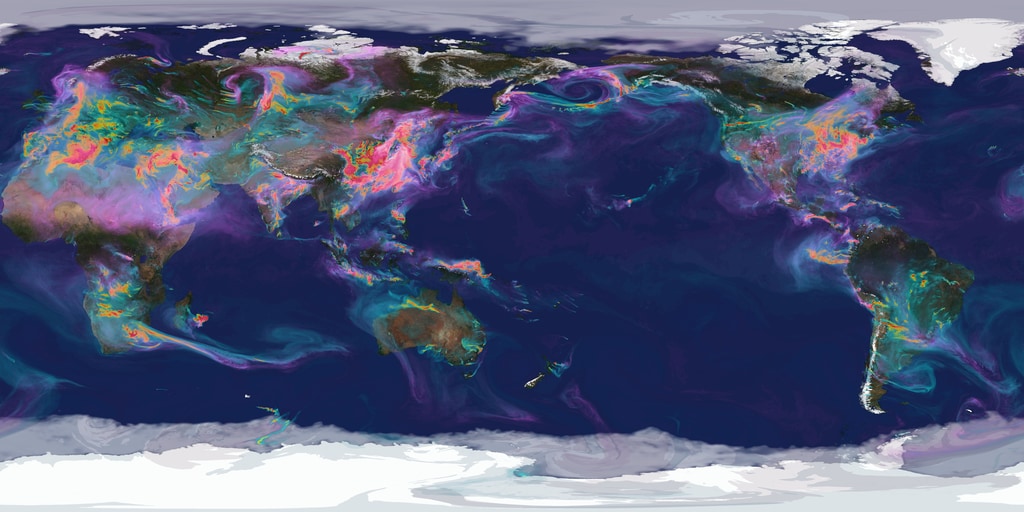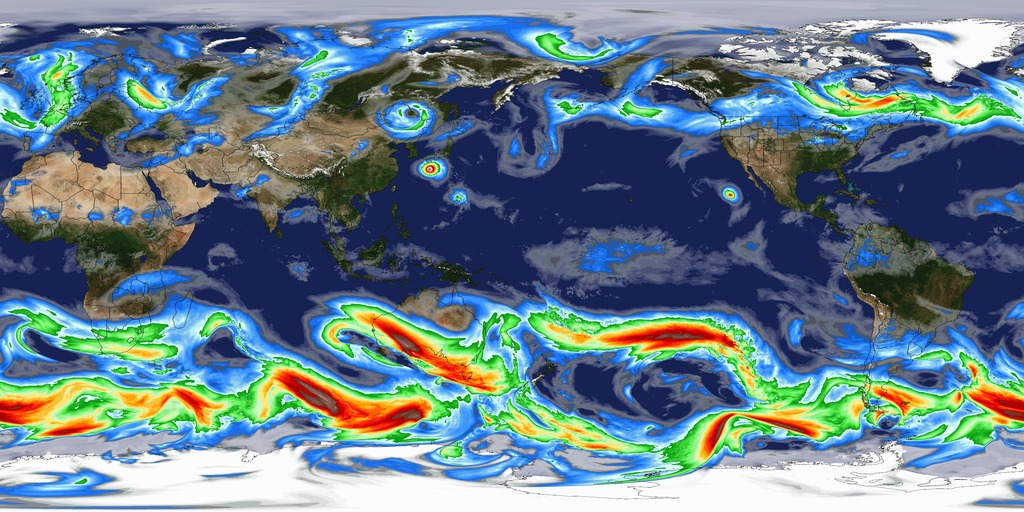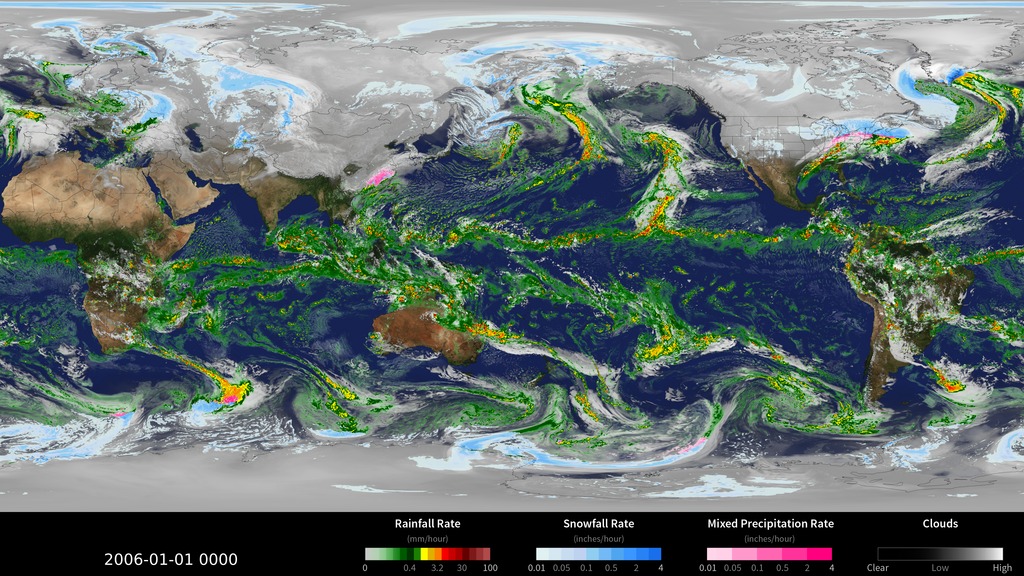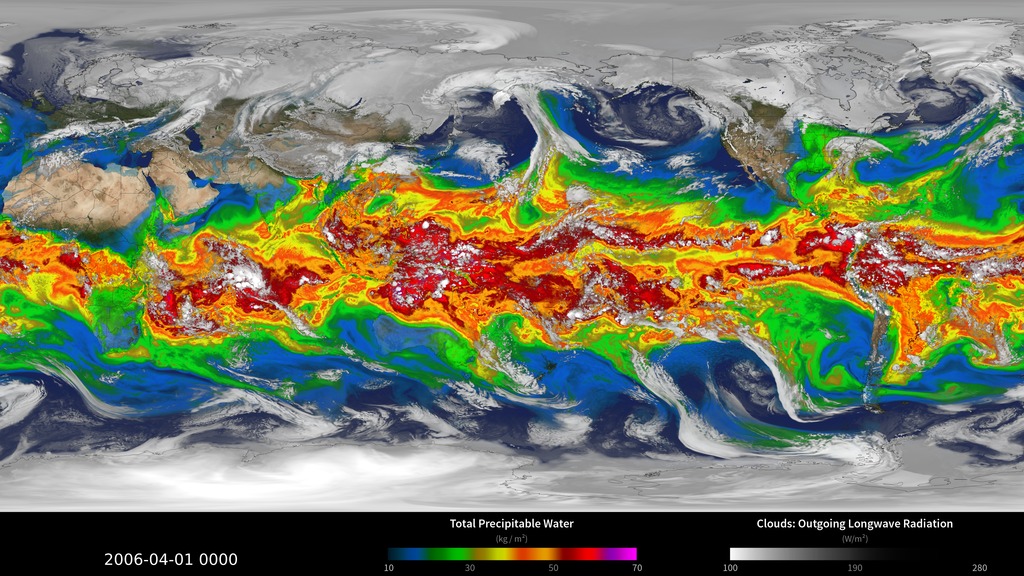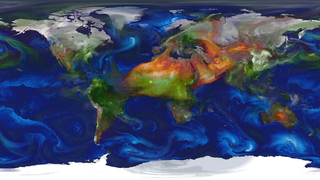Simulated Surface Carbon Monoxide
Carbon Monoxide animation of Dec 1 - 31, 2006
Carbon monoxide (CO) is a colorless, odorless, tasteless gas emitted primarily from bio- and fossil fuel combustion and forest fires. CO is regulated by the environmental protection agency because extremely high concentrations can cause harmful health effects. This simulation, produced by the Goddard Earth Observing System Model Version 5 (GEOS-5) at 7-kilometer resolution, shows carbon monoxide concentrations at Earth’s surface from December 1-31, 2006. In the atmosphere, CO has a lifetime of about one month resulting in the highest mixing ratios over source regions. The CO seen here primarily comes from fires burning in South America and Africa, and industrial activities taking place in urban areas such as Europe, Asia, and the United States. Atmospheric circulation quickly moves CO in concentrated masses, often transporting this pollutant from one continent to the next. Simulations such as this allow scientists to better understand the variability and transport of CO and show both the regional and global impacts of pollution.
Credits
Please give credit for this item to:
NASA's Scientific Visualization Studio
-
Animator
- William Putman (NASA/GSFC)
-
Project support
- Eric Sokolowsky (Global Science and Technology, Inc.)
Release date
This page was originally published on Wednesday, December 10, 2014.
This page was last updated on Sunday, January 5, 2025 at 12:25 AM EST.

